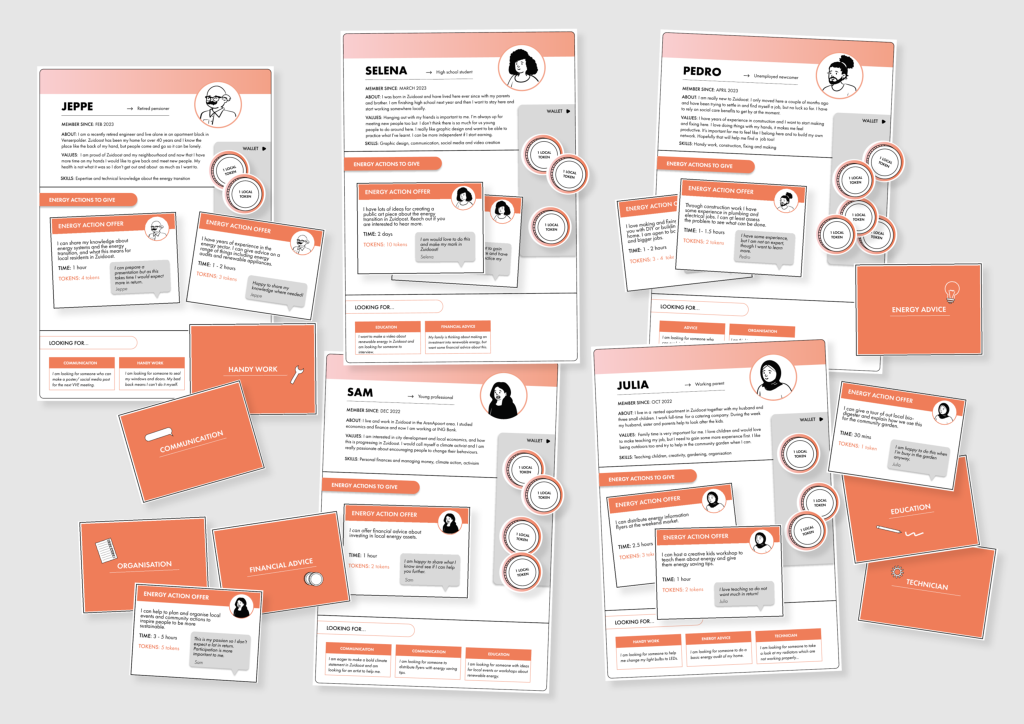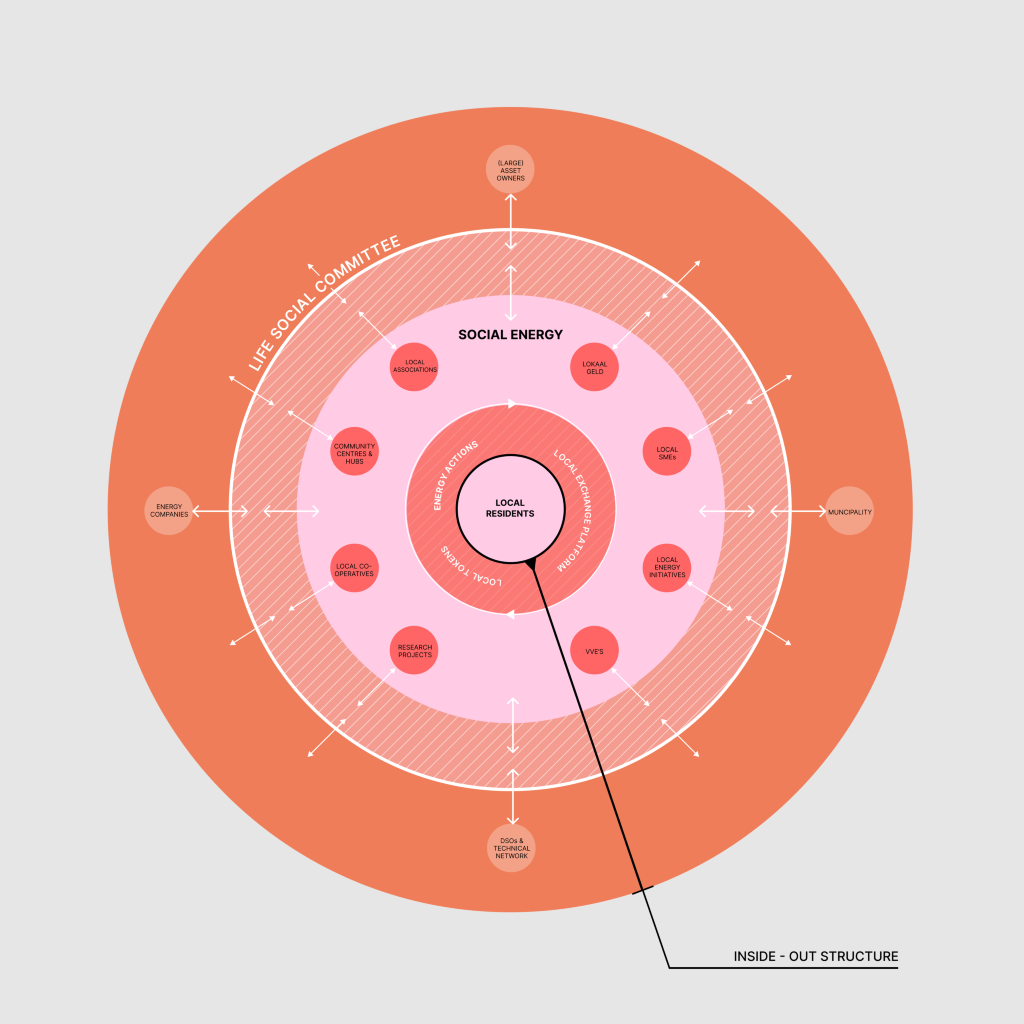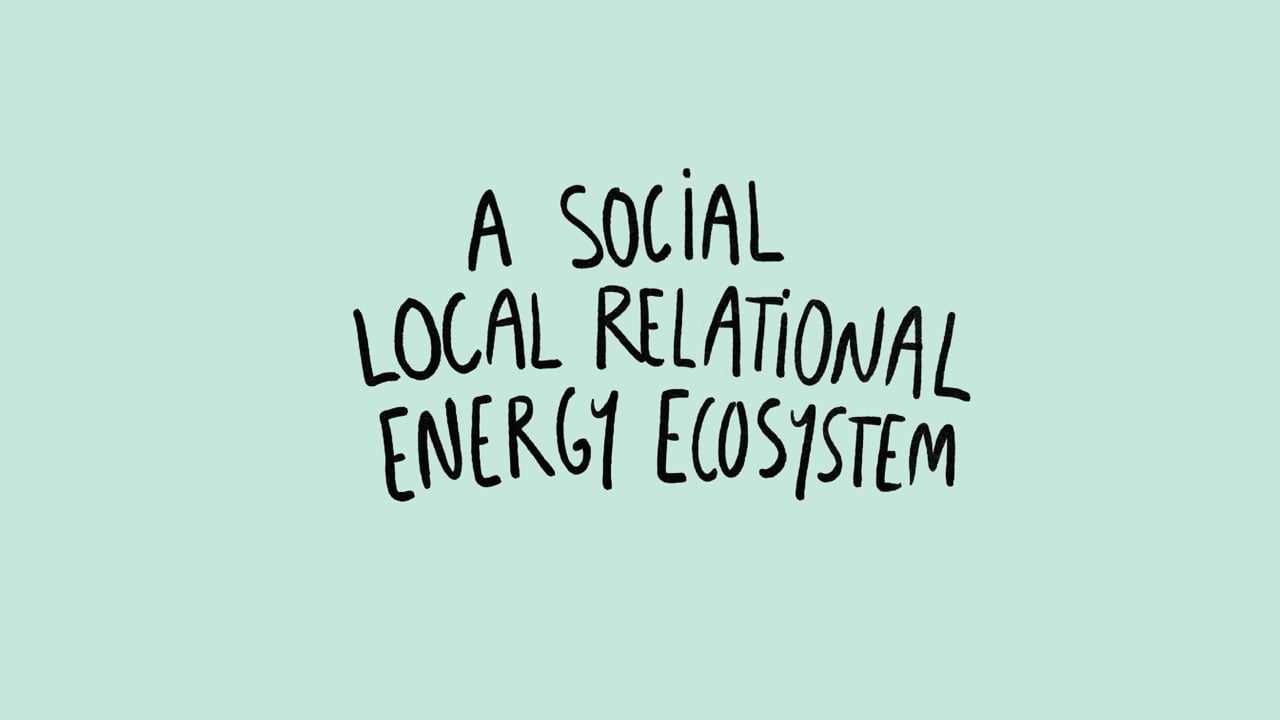Unlocking Social Energy Through Relational Giving
Vic Toellner, Abhigyan Singh, Dave Murray-Rust, Hans Roeland Poolman
How can we facilitate socially inclusive energy exchange?
Our current energy systems are complex, ambiguous and opaque. Whilst the intention is to include residential end-users, in reality these systems lead to detachment and a sense of loss of control. Based on market-like models which label residents as profit-motivated buyers and sellers, the opportunity for socially-driven energy exchange has been overlooked.
Technology and infrastructure may be advancing, but the current energy transition widens social inequalities and leaves vulnerable groups behind.
In a bid to ensure the inclusion of low-income residents and to meet the government’s target of an energy neutral Amsterdam Zuidoost by 2040, the Local Inclusive Future Energy (LIFE) project is working on utilizing local and sustainable energy in a new decentralized system.

We took an anthropological approach to explore opportunities for actively inclusive energy exchange, and to challenge the rational and market-driven constraints which govern current systems. As a result of extensive ethnographic and design research activities, energy exchange is reframed as a fundamentally social, relational and community-based practice.
A new type of exchange, coined ‘relational giving’, is proposed through the concept of Energy Actions. Arranged through a platform and connected to an alternative token system, these actions provide an outlet for local skills and empower all residents to contribute to the transition. By giving and receiving Energy Actions, such as handy work and education, opportunities are created for the formation and strengthening of social relationships. The mixed media outputs in the form of video, an Energy Actions Enactment game, and a framework, tell the social story, showcase the envisioned future energy ecosystem, and act as stimuli for co-creation and taking action.

Climate Futures Now:
This project aims to inspire and offer a new perspective on energy exchange, introducing tangibility to an entangled and unexplored space. Energy is repositioned not as a commodity to be bought and sold, but as an agent for building inclusive and socially cohesive communities.
While this design research does offer practical tools, it is only the start in moving towards a social, local and relational energy future. After all, the work in a dynamic ‘transition in transformation’ is never done. To activate further exploration and invite collaboration in continuing this journey, sixteen ‘steps to move’ are recommended.
Politics of Design:
With entertainment venues, large renewable asset owners and social housing, Amsterdam Zuidoost is home to low-income residents from over 109 different nations. The diverse and dynamic social, cultural and financial composition poses unique challenges and opportunities in becoming a pioneer in a socially inclusive transition.
Using design anthropology, adopted in this project, we sought to understand existing relationships, behaviours and patterns and then use them to inform the design of a future conceptual ecosystem. In this way, today’s practices trigger tomorrow’s designs. To further challenge the conventional, and address democracy in decentralised systems, a novel connection is made between energy and community value networks.
Part of a large, complex, multi-stakeholder and cross-disciplinary project, this work demonstrates the power of multi-layered and participatory design research methods in creating connections and starting conversations.

